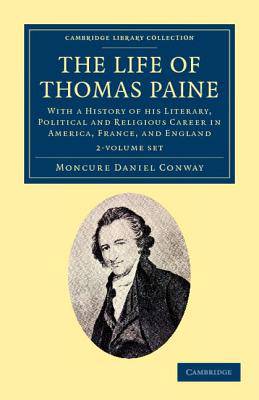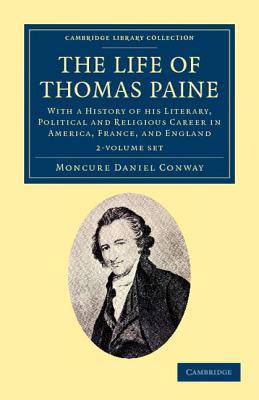
Bedankt voor het vertrouwen het afgelopen jaar! Om jou te bedanken bieden we GRATIS verzending (in België) aan op alles gedurende de hele maand januari.
- Afhalen na 1 uur in een winkel met voorraad
- In januari gratis thuislevering in België
- Ruim aanbod met 7 miljoen producten
Bedankt voor het vertrouwen het afgelopen jaar! Om jou te bedanken bieden we GRATIS verzending (in België) aan op alles gedurende de hele maand januari.
- Afhalen na 1 uur in een winkel met voorraad
- In januari gratis thuislevering in België
- Ruim aanbod met 7 miljoen producten
Zoeken
The Life of Thomas Paine 2 Volume Set
With a History of his Literary, Political and Religious Career in America, France, and England
Moncure Daniel Conway
€ 79,95
+ 159 punten
Omschrijving
Conway's two-volume biography of revolutionary author Thomas Paine (1737-1809) did much to inspire a reassessment of Paine's importance in the 'age of revolutions'. Paine's political pamphlets influenced the American Declaration of Independence, and he was later a member of the French Convention, voting against the execution of Louis XVI.
Specificaties
Betrokkenen
- Auteur(s):
- Uitgeverij:
Inhoud
- Aantal bladzijden:
- 906
- Reeks:
Eigenschappen
- Productcode (EAN):
- 9781108045377
- Verschijningsdatum:
- 8/03/2012
- Uitvoering:
- Boek
- Afmetingen:
- 140 mm x 215 mm
- Gewicht:
- 1240 g

Alleen bij Standaard Boekhandel
+ 159 punten op je klantenkaart van Standaard Boekhandel
Beoordelingen
We publiceren alleen reviews die voldoen aan de voorwaarden voor reviews. Bekijk onze voorwaarden voor reviews.









